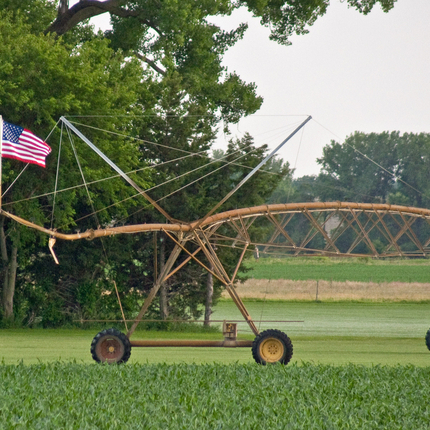The Center for Rural Affairs has focused on beginning farmers since 1990, when we analyzed the changing age of farmers. In 2009 we noticed an increasing number of inquiries from military veterans about how to start farming, while asking what special help they could get.
The military veterans who sought our advice had the same needs as other new farmers: access to land, financing and information. But they also brought new issues: disabilities, returning to civilian life, a drive to help fellow veterans, a powerful sense of wanting to be of service to their country.
As the number of inquiries rose from returning veterans, we looked around for experts on working with veterans, their GI Bill benefits, and veterans’ special needs. We located some other organizations providing specialized information, but we found no comprehensive services.
The Center’s Veteran Farmers Project provides information, encouragement, connections, and referrals. We provide basic information on strategies to begin farming: land access, financing, identifying markets, building business plans, and more. The strongest encouragement we can give veterans who want to farm is effective strategies to craft solid farm businesses built both on their strengths and their dreams.
We connect veteran-farmers with other veterans; they seek to retain and rebuild bonds with others who have served in the military and they help each other over the obstacles of building a farm business and returning to civilian life. We refer veteran-farmers to resource providers who can help with disability services, business advising, finding mentors, gaining production and marketing experience, and other needs.
In our workshops, veterans can meet individually with service providers. We’ve used webinars to explain resources and strategies. Farm tours show veterans what works and lets them meet others doing what they want to do. We’ve used email and the phone to advise on farm startup strategies.
Farming fits veterans, and veterans fit farming. Our farm population is aging, and we need new farmers and young families to sustain our food production, land conservation, and rural communities. Veterans approach each day as farmers and ranchers do: with discipline, self-confidence, drive to complete a task, desire to improve knowledge and proficiency, loyalty to family and friends, and a sense of service.
Many veterans are from rural areas and want to return to small towns to raise their families. Rural America appreciates the sacrifices made by our veterans, and we welcome them home.
Despite these good intentions, rural institutions and services are seriously challenged by veterans’ dreams to settle in small towns. Educational opportunities, supplemental off-farm jobs, health services, and young peers are all in short supply across rural America.
Partnerships and networks such as those built in the Center for Rural Affairs Veteran Farmers Project can create the support structures and public policies to ensure that our veterans can thrive as they build careers in agriculture.
This interview is part of a story for the American Soybean Association’s magazine by Darcy Maulsby, an Iowa-based freelance writer.





